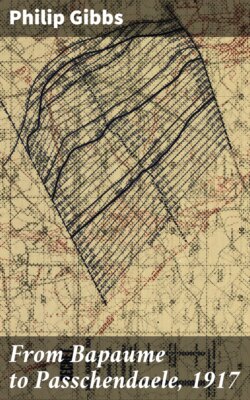Читать книгу From Bapaume to Passchendaele, 1917 - Philip Gibbs - Страница 7
На сайте Литреса книга снята с продажи.
III THE ABANDONMENT OF GRANDCOURT
ОглавлениеTable of Contents
February 8
That the troops of our Naval Division (the 63rd) should have been able to walk into Grandcourt yesterday and take the place after its abandonment by the enemy (except for a few men left behind to keep up appearances as long as possible, poor wretches) is a proof that the German High Command prefers, at this point of the struggle, to save casualties rather than to hold bad ground at any cost. It is a new phase, worthy of notice. A year ago he would not let his pride do this. Less than a year ago, when we took ground from him by a sudden assault, he would come back with a frightful counter-blow, and there would be a long and bloody struggle, as at the Bluff and St.-Eloi, over trenches taken and retaken. Combles was the first place from which he crept away without a fight. Grandcourt is the second place, abandoned for the same reason—because it was caught in the pincers of our forward movements. It lies low on the south side of the Ancre, below Miraumont, and it became a place of misery to German troops after the capture of Beaucourt and Beaumont-Hamel, on the other side of the river—still worse when on Sunday last our men advanced north of Beaucourt, capturing a couple of hundred prisoners and consolidating on a line of ground dominating Grandcourt, on the north-west. It was probably then that the enemy decided to withdraw to a stronger and higher position south of Miraumont and Pys, which he has been digging and defending with rapid industry in spite of the hard frost, which double the labour of the spade. Fear, which is a great General makes him a hard digger, and he will burrow underground while our men are scraping the snow away on our side of the line. A few men, as I have said, were left behind to make a show. They were seen moving about in the neighbourhood of a German trench barring the way to Grandcourt on the south-west. It was some time before our patrols, creeping out over the snow, saw that this half-mile of line was empty of men, and that the enemy had gone back to some place unknown. On Tuesday our troops moved into this position, watched by those few men, left as scarecrows, who are now our prisoners, and who saw the English soldiers get up out of their ditches and shell-craters and cross the snowfield in open order with a steady trudge, their bayonets glittering, and then drop down into the battered trench in which there was nothing but the litter of former habitation and some dead bodies. Yesterday it was decided to push on to Grandcourt. Observing officers could see the snow on the broken roofs and ruined walls of that village, where bits of brick and woodwork still stand after heavy bombardment. They could not see whether the place was still held. Only actual contact would show whether those quiet ruins would be noisy with the chatter of machine-gun fire if our men went in. A sinister spot—with an evil-sounding name to soldiers of the Somme, because here for many months the enemy had massed his guns which fired down to Contalmaison and flung high explosives over the country below the Pozières Ridge.
It was in the afternoon that the entry was made beneath a great barrage of our shells advancing beyond the infantry and through a heavy fire from the enemy's guns, which did not check the advance of our men. A few German soldiers were taken in rear-guard posts. They came out of shell-craters with their hands up, and were sent back to our lines. There was no fighting in the ruins of the village. Grandcourt was ours, with its deep dug-outs littered with German clothes and stored with rations of German soldiers, which our own men enjoyed as a change of diet, while they took cover from the enemy's shell-fire over his old home.
Last night in the light of a full moon, curiously red so that the snow was faintly flushed, two more attacks were made and two more positions taken, north and south-east of Grandcourt. On the north side of the Ancre Baillescourt Farm was seized, and in its neighbourhood eighty soldiers and one officer were made prisoner. They belonged to the same corps as those I saw last Sunday, and were recruited from the Hamburg-Altona district; all stout fellows, well nourished and well clothed. They had not expected the attack, not so soon, anyhow, and were caught in dug-outs by the ruined farmhouse, which some months ago was a good landmark with its white walls and barns still standing. Now it is but a litter of beams and broken plaster, like all houses along the line of battle.
